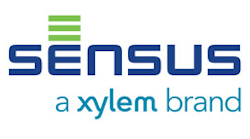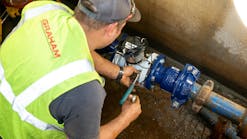RALEIGH, NC -- The City of Columbus Department of Public Utilities has a long history of superior customer service dating back to 1871 and its first drinking water treatment facility at the confluence of the Scioto and Olentangy rivers. Today, Columbus is taking the next step in this journey by partnering with Sensus, a Xylem brand, to build a smart utility network.
Both the city’s Division of Water and Division of Power will share an integrated communication network. The technology upgrade will accurately measure water and electricity consumption, and rapidly detect leaks or power outages for over 1.2 million residents in and around Ohio’s capital city.
“We want to provide our customers with timely consumption data so they can understand their water and electricity usage,” said Brian Haemmerle, an assistant administrator with the city’s Division of Water. “We’ll enhance our services with real-time alerts, so if there’s an issue we can get it resolved quickly or inform the customer it needs to be addressed on their end.”
The Columbus Department of Public Utilities will deploy Stratus IQTM residential electricity meters, SmartPoint® radio modules for its new and existing water meters, and the Sensus FlexNet® communication network. The FlexNet two-way system provides secure, reliable, real-time customer usage data from advanced meters and sensors to the city over FCC-licensed spectrum.
“Our smart utility network will create greater operational efficiency and allow us to improve focus on the details within our entire water distribution system,” said Haemmerle. “On the electricity side, we’ll have the latest technology for power quality and outage management.”
The department will also launch the Sensus Customer Portal to streamline customer communication. “We’ll empower our customers to opt-in for access to their usage data—even in one-hour increments—before they receive their bill,” said Haemmerle.
The 20-year partnership includes Managed Services and Software as a Service (SaaS) solutions, which allows Sensus to maintain and perform software upgrades so the utility can focus on what it does best: providing safe drinking water and reliable electricity.
The initial deployment of new metering technology is underway and the project should be completed within the next four years.




